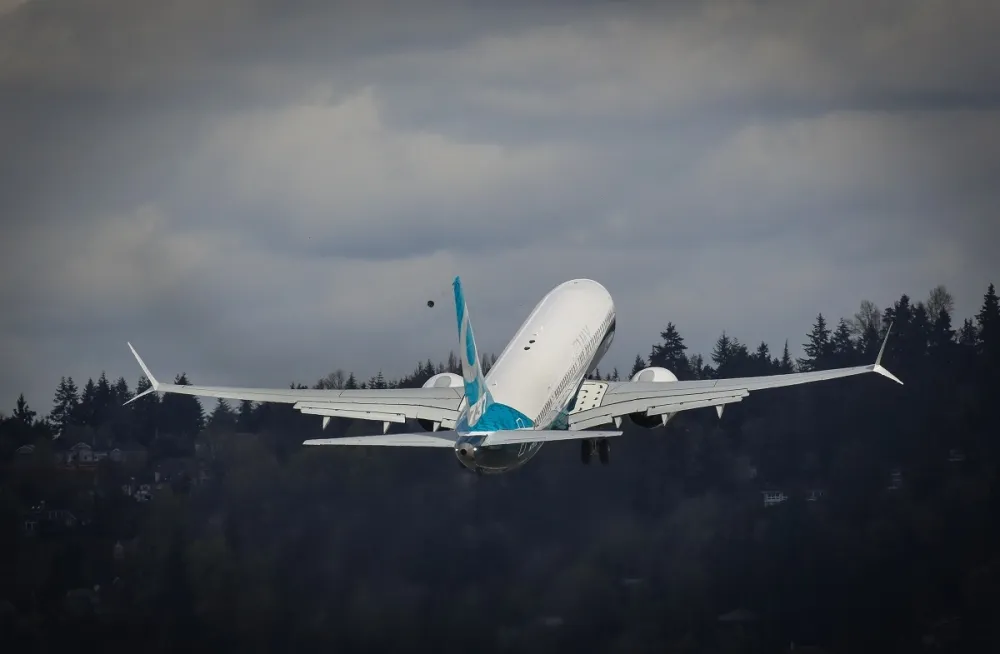
Boeing confident on MAX simulators despite internal messages
Jan 10, 2020

Boeing maintains confidence in the safety and reliability of its MAX simulators, despite internal communications that raised concerns among employees. The company asserts that these simulators meet rigorous industry standards for pilot training and safety. While some internal messages highlighted potential issues, Boeing emphasizes its commitment to transparency and ongoing improvement. The company believes that the simulators effectively prepare pilots for real-world scenarios and operate within the necessary regulatory frameworks. Boeing continues to work closely with regulators and stakeholders to address any concerns while reinforcing the importance of its training programs in enhancing aviation safety.
Boeing has faced significant scrutiny regarding the safety and reliability of its MAX simulators, especially in light of internal messages that have surfaced. However, the company remains confident in the performance and accuracy of these simulators, which are crucial for pilot training and operational readiness. This article delves into Boeing's stance on its MAX simulators, addressing concerns while highlighting the importance of simulator technology in aviation safety.
Understanding the Internal Messages
Recent revelations from internal communications at Boeing have raised questions about the effectiveness and safety of the MAX simulators. These messages suggest that some employees expressed doubts about the simulators’ ability to accurately replicate real-world flying conditions. However, Boeing has responded by emphasizing that the company thoroughly tests and validates its simulators to meet the highest safety standards.
Boeing's Assurance on Simulator Quality
Despite the concerns arising from these internal messages, Boeing is committed to ensuring that its MAX simulators provide a realistic training environment for pilots. The company asserts that the simulators are built using advanced technology that reflects actual aircraft performance. This commitment is vital, as accurate simulation training is essential for pilots to handle emergencies and day-to-day operations effectively.
The Role of Simulators in Pilot Training
Simulators have become integral to modern pilot training programs. They allow pilots to experience various flight scenarios, including emergencies, without the risks associated with real flight. Boeing recognizes that the quality of its simulators directly impacts pilot preparedness. Therefore, the company continuously invests in improving simulation technology to enhance training outcomes. The following table outlines the key features of Boeing's MAX simulators:
| Feature | Description |
|---|---|
| Realistic Flight Dynamics | Simulators replicate the flight characteristics of the MAX aircraft, providing pilots with an authentic experience. |
| Emergency Procedures Training | Allows pilots to practice handling various emergency situations safely. |
| Advanced Visual Systems | High-definition visuals that simulate real-world environments, enhancing situational awareness. |
| Data-Driven Feedback | Simulators provide detailed performance metrics that help instructors evaluate pilot proficiency. |
Addressing Safety Concerns
Boeing acknowledges the importance of addressing safety concerns transparently. The company has implemented rigorous testing protocols to ensure that its simulators meet or exceed industry standards. Additionally, Boeing works closely with regulatory bodies to maintain compliance and enhance safety measures. This collaborative approach reflects Boeing's commitment to fostering trust within the aviation community.
Industry Impact and Future Developments
The aviation industry is continually evolving, and Boeing's efforts to enhance its MAX simulators play a pivotal role in shaping the future of pilot training. As airlines invest in new technologies and training methodologies, the demand for effective simulators will only increase. Boeing remains at the forefront of this innovation, ensuring that its training solutions are equipped to meet future challenges.
Looking ahead, Boeing is exploring advancements in simulation technology, including virtual reality (VR) and augmented reality (AR). These technologies have the potential to revolutionize pilot training by providing even more immersive experiences. By staying ahead of industry trends, Boeing aims to enhance the effectiveness of its MAX simulators further.
Conclusion
In conclusion, while internal messages have raised concerns about Boeing's MAX simulators, the company maintains confidence in their capabilities. With a focus on safety, quality, and technological advancement, Boeing is committed to providing pilots with the best training tools available. As the aviation industry continues to evolve, Boeing's dedication to improving its MAX simulators ensures that pilots will be well-prepared to navigate the challenges of modern aviation.
By prioritizing innovation and safety, Boeing is not only addressing current concerns but also laying the groundwork for the future of pilot training and aviation excellence.
Related Articles

Explore Thailand: The Best Islands to Visit for Paradise, Adventure, and Relaxation

The Ultimate Guide to the Best Islands in Thailand for Your Next Getaway

Do babies need passports? How to get a passport for a newborn

How to get a U.S. passport fast: here’s how to expedite the process

What is Mobile Passport Control: 5 reasons why you should use it

SENTRI vs. Global Entry: A detailed guide

Do you need a passport to go to the Bahamas? Let’s find out

Do you need a passport to go to Mexico? A detailed guide

Do you need a passport to go to Canada? We got the answer

Do You Need a Passport for a Cruise: An Essential Travel Guide

Booster Seat Requirements: All the Rules to Follow in Your Rental Car

What Are the World’s Most Powerful Passports, and How Does Yours Rank?

How to Take a Passport Photo at Home: A Helpful Guide

You've got to have heart! Southwest's new livery

Your opinion: Should water be free on low cost carriers?

Young women bolder than guys as solo travellers
